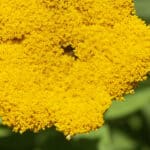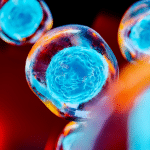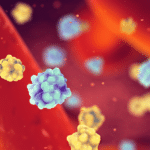The use of cannabis as medicine is not going away. Testimonials from patients, families and physicians continue to fuel a swing in public support for reintroducing cannabis to widespread use in the American medicine cabinet. Regardless of the pace of change in cannabis policy, it is critical that physicians and other allied health workers attend with an open mind to the real world rationales for cannabis used as a medicine, its risks with respect to other widely used medicines, and the ethical question of whether honest medical access to cannabis should be prohibited by law.
Clinicians should also know that an important aspect of the popularity and staying power of medical marijuana is its scientific credibility. Biomedical research has yielded a trove of discovery about the endocannabinoid system (ECS). Endocannabinoids are arachidonic acid-derived lipid signaling molecules that are produced throughout the body, not at all confined to nervous tissue as once imagined, and which mostly act as paracrine signals serving a wide variety of homeostatic functions. These range from the neuroendocrine control over feeding and metabolism, to bone remodeling, to pleiotropic effects on inflammatory immune function, to the more familiar anti-seizure effects, to name but a few. Numerous authoritative books and literature reviews demonstrate the scope of endocannabinoids’ physiological importance to be vastly beyond that of a brief commentary.
The Relevance of Cannabis Research
This body of research is of course powerfully relevant to cannabis. In some ways it’s ironic that many of the most compelling discoveries about the neuroprotective properties of cannabinoids, for example, have arisen out of funding priorities to study the presumed risk of marijuana. However, the field has expanded well beyond the prerogatives of drug abuse research, as presaged by seminal findings showing the extraordinary abundance of CB1 cannabinoid receptor expression throughout the mammalian brain, and how the endocannabinoids behave as cellular negative feedback signals to dampen excitotoxicity.
The scientific consensus that has arisen from this body of data is exciting. The human ECS can be viewed as an intrinsic system of neuroprotection, a homeostatic defense of the brain and spinal cord to excitotoxicity, seizure, traumatic injury, and ischemia. Cannabinoids also defend against many facets of immune responses that exacerbate brain injury, such as microglial activation. Moreover, chronic neuroinflammation is now believed to be central to the etiologies of many age-related neurodegenerative diseases.
Inflammation is a key cause of chronic neuropathic and rheumatic pain, and clinical data increasingly support the use of cannabinoids as a potential therapeutic strategy. The central neural circuitries of pain are also regulated actively by cannabinoids and at multiple levels; indeed the very same can be said for the neural systems of fear, stress and emotional affect.
The scientific literature supporting these broad claims is extensive and of high caliber, and is actively disseminated to the public at various degrees of sophistication. While it is true that only a relatively small fraction of cannabinoid research has been from clinical trials—clearly a consequence of obstructing policies of prohibition—the research continues at a rapid pace to demonstrate mechanistic plausibility for a range of conditions that still surprises me after 20 years in the field.
How to Approach Cannabis as Medicine
It is also universally recognized that in modest doses cannabis and its extracts are well tolerated, and that even very high doses will cause distress but not death. Thus it shouldn’t be taken with surprise or cynicism that so many patients have the perception that cannabis does or might help them. The response of the healthcare community should instead be to stay ahead of the educational curve.
It is also time for healthcare professionals to engage in critical evaluation and engaged commentary on the systems of prohibition that force honest patients to become criminals should they try cannabis. Educate yourselves to form an opinion and ethical position on the use of criminal sanctions to deny access to medical marijuana. As for me, I believe that measures like Amendment 2 in Florida are a cautious approach and a moral imperative.
A version of this article was published in South Florida Hospital News and Healthcare Report. Greg Gerdeman, Ph.D. is a neuroscientist and educator. He discloses financial interests as a consultant in the legal medical cannabis and hemp industries. Copyright, Project CBD. This piece was reprinted by Project CBD. It may not be reproduced in any form without approval from the source.








